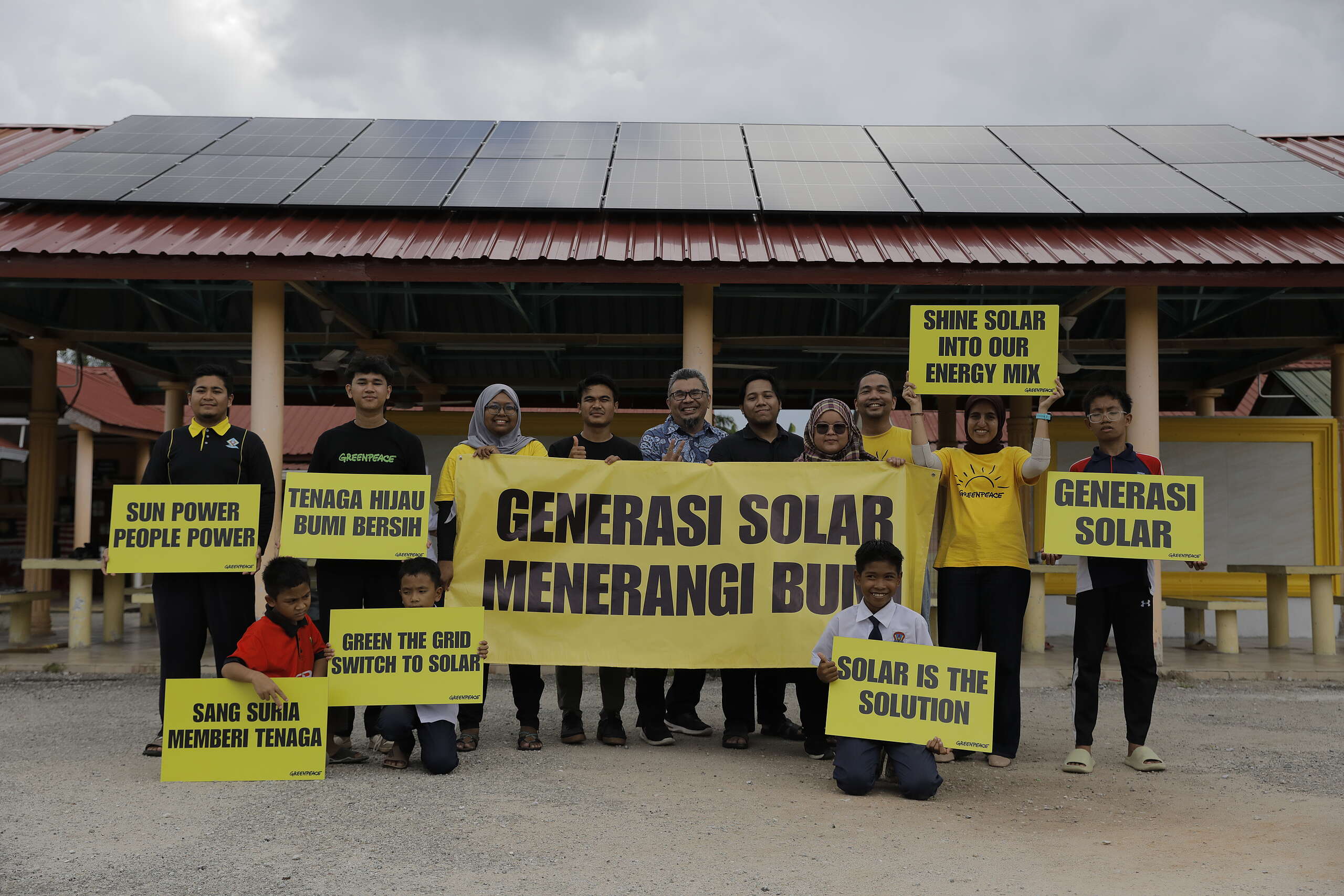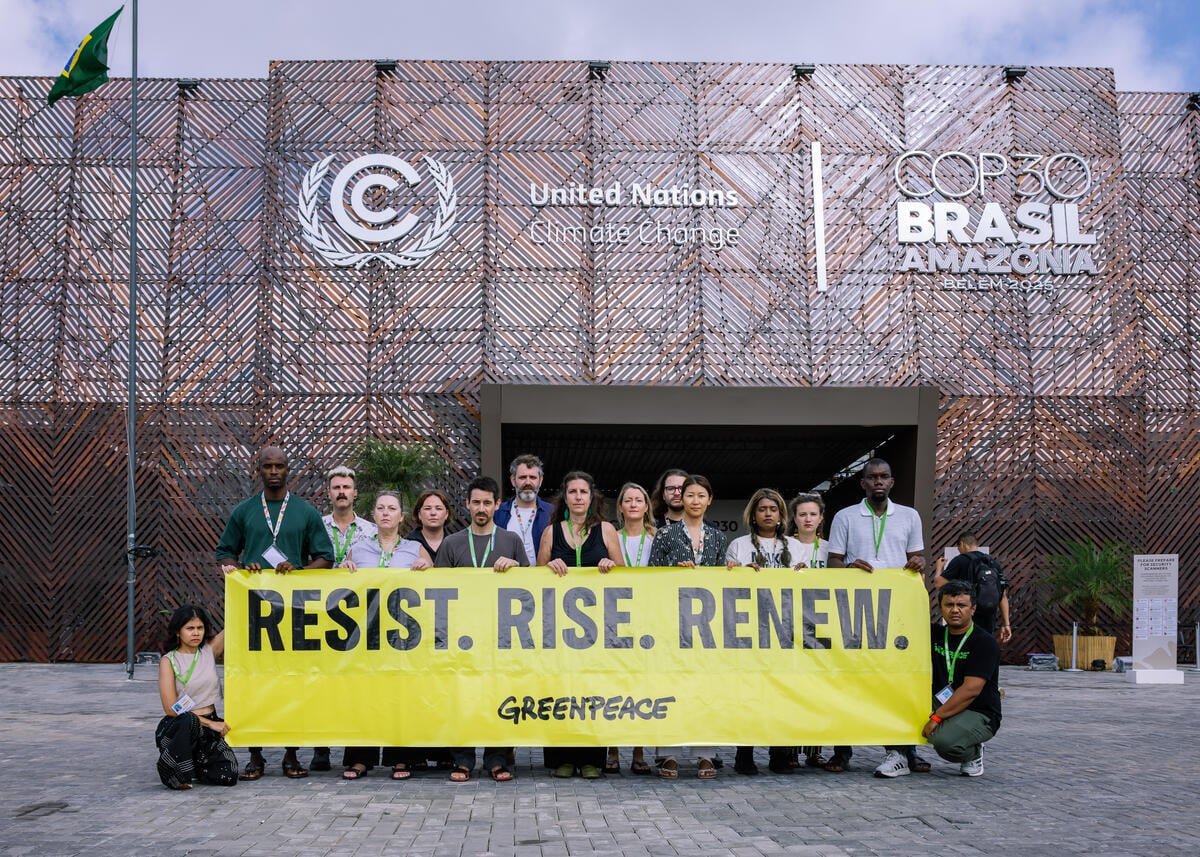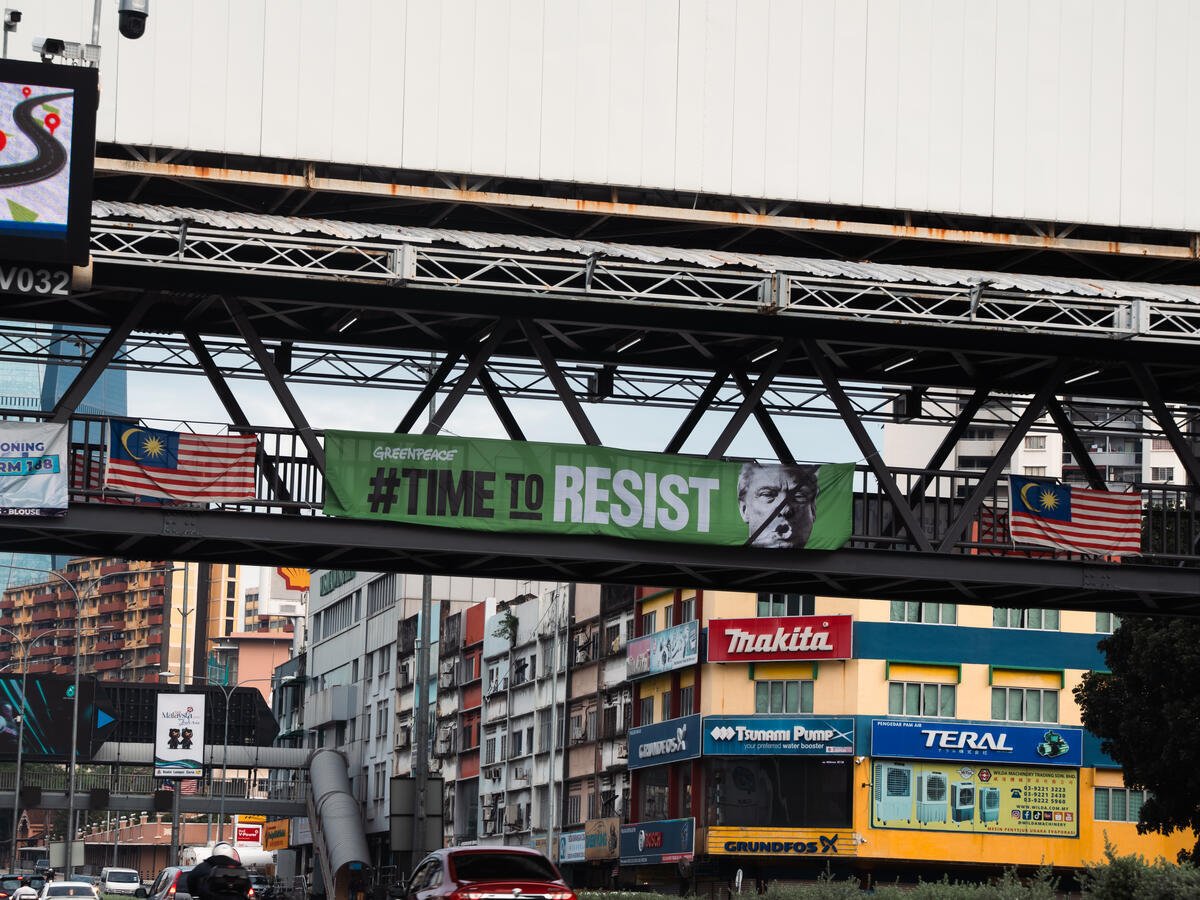Carbon capture, utilisation, and storage (CCUS): A false solution that is ineffective, unproven, and expensive.
Gabungan Darurat Iklim Malaysia (GDIMY), is a loose coalition of civil society organisations, and individuals formed in 2021 to address Malaysia’s response to the global climate emergency through urgent and concerted action. We are bringing forth a memorandum to the Dewan Negara addressing the urgent concerns surrounding the recently passed Carbon Capture, Utilisation, and Storage (CCUS) Bill 2025.
Background
The CCUS Bill 2025, passed on 6 March 2025 in Dewan Rakyat, represents a hasty decision prioritising economic opportunism over genuine climate action and environmental protection. This legislation raises serious questions about its long-term environmental and social implications.
Despite concerns raised by several Members of Parliament during the debate, the bill was rushed through without adequate public consultation or proper scrutiny. Our coalition believes thorough stakeholder engagement is essential before implementing such far-reaching legislation.
The CCUS Bill is now headed to Dewan Negara for debate before being approved and sent to the Yang di-Pertuan Agong for royal assent. CCUS is often promoted with grand claims, yet real-world applications rarely meet these expectations. Without adequate safeguards, Malaysia risks becoming a global carbon dumping ground.
We are of the opinion that carbon capture is a false climate solution that only seeks to prolong the lifeline of the fossil fuel industry. It is expensive, ineffective, energy-intensive and could potentially increase carbon dioxide (CO2) emissions instead of decreasing them. CCUS projects also pose serious threats to public safety and environmental integrity, which could result in severe implications for the people and environment.
Our Concerns
- Undemocratic Legislative Process: The CCUS Bill was rushed through Parliament with its first reading on March 4th and passed on March 6th, 2025, without adequate time for proper scrutiny or public consultation. Despite claims by the Minister of Economy in the Parliament about “extensive stakeholder engagement,” the reality falls far short. Civil society organisations were offered only a single consultation session in June 2024 with limited follow-up. More concerningly, the wider public was completely excluded from consultation processes, violating fundamental principles of environmental democracy.
- Prioritising Economic Interests Over Safety and Sustainability: The Minister’s statements in Parliament revealed the government’s true motivation: positioning Malaysia to secure international carbon storage contracts before the March 31, 2025 deadline. This rush to position Malaysia as a “carbon storage hub” appears driven by profit motives rather than evidence-based climate policy. Real climate solutions should reduce emissions at source, not create new business opportunities for storing other countries’ carbon while potentially exposing Malaysians to environmental risks.
- Dangerous Mischaracterisation of Safety Concerns: We are deeply troubled by the Minister’s dismissive attitude towards safety concerns, particularly his claim that “carbon dioxide is not classified as toxic under environmental laws.” This dangerous oversimplification ignores the well-documented risks of concentrated CO2 exposure. The risks extend beyond immediate human exposure to include broader ecological and environmental concerns that were not adequately addressed. Additionally, the Minister’s comparison of carbon storage to existing petrochemical industries fails to address the unique risks of permanent carbon storage, where leakage could have devastating long-term consequences for communities and ecosystems.
- Misleading International Comparisons of Success: The Minister cited Norway’s and Japan’s carbon storage projects as evidence of success and safety, but these examples are inappropriate comparisons for Malaysia’s ambitions:
- These projects operate at much smaller scales than the proposed Malaysian facilities.
- They are primarily research and demonstration projects, not commercial-scale operations.
- A new IEEFA study reviewed the capacity and performance of 13 flagship CCUS projects and found that 10 of the 13 failed or underperformed against their designed capacities, mostly by large margins.
- None of the current real-world applications of carbon capture have ever lived up to the ambitious promise of a 90% capture rate. The global average capture rate of carbon capture projects is around 49%, with rates even going as low as 10%
- Missing Climate Governance Framework: The legislation is being implemented before establishing a comprehensive Climate Change Act (RUUPIN), creating a fragmented approach to climate governance. A proper legislative sequence would first establish overarching climate goals and governance structure before introducing specialised technologies like CCUS.
- Uneven Regional Impacts and Transparency: The Minister repeatedly emphasised economic benefits for specific sites like Kerteh (Terengganu) and Kuantan (Pahang), while providing minimal information about the developing Kasawari project in Sarawak. This selective focus further demonstrates how the rushed legislative process prevents proper consideration of regional impacts. All Malaysian communities deserve equal environmental protection and transparent information about carbon storage projects, regardless of whether they fall under federal or state jurisdiction.
We demand the CCUS Bill to be revised to include the following:
- Establishment of an independent oversight and advisory body that includes civil society organisations to ensure transparency, accountability and rigorous public scrutiny of carbon capture technologies. The election of the technical competent entity along with the composition of the Malaysian CCUS Agency should also include members from civil society.
- Strengthening of environmental and social protections, particularly regarding indigenous land rights and community impacts.
- Prioritisation of the Climate Change Bill (RUUPIN) as a governing framework before proceeding with CCUS legislation.
- Ensuring thorough public consultation and engagement is conducted when doing the revisions towards the Bill and on any upcoming CCUS related regulations, standards and practices.
- Regulations and comprehensive impact assessments that genuinely incorporate community needs and concerns.
- Redirecting government focus toward proven climate solutions including expanding renewable energy in the electricity grid, enhancing energy efficiency, and fostering truly sustainable development that benefits the public.
- The CCUS bill should require comprehensive, full and proactive life-cycle regulation, from planning phase, operational phase to the post closure phase. The current bill and its scope are clearly lacking in addressing all the concerns, risks and uncertainties associated with CCUS. No license and permit should be issued until the comprehensive full package of the law including regulations are in place.
- The current CCUS Bill states that it will involve the Government in extra financial expenditure the amount of which cannot at present be ascertained. Most CCS projects have had unique engineering challenges which resulted in underperformance and cost blow-outs. The financial implications of this bill should be ascertained/debated prior to any approval of this bill.
- There must be extensive and robust safeguards outlined in the Bill such as the following:
- Comprehensive impact assessment that genuinely incorporates the needs and concerns of the public. This can be through an Environmental Impact Assessment (EIA) regime that makes public display and comments mandatory and a Social Impact Assessment (SIA) that is transparent and public.
- The objective of the Bill should be to regulate the implementation of CCUS instead of the current intent of catalysing its development as a new source of economic development for the country.
- Removal of all sections allowing for the foreign dumping of C02 on Malaysian territories and instead have sections in the Bill outright prohibiting such activities even if it is conducted by the government.
- A more detailed explanation of what is deemed as prudent carbon capture, utilisation and storage practices that has been left very vague and unclear in the Bill.
- Expressly state that the Bill will be in accordance with the National Physical Plan and the Town and Country Planning Act 1976.
- Establish provisions in the Bill that allows for the license to operate CCUS facilities to be revoked, when there is persistent significant irregularities / underperformance / leakages as a mechanism to hold the companies / parties accountable. The bill should mandate comprehensive plans that set out realistic expectations for performance variations, clearly define when a license would be revoked or withdrawn in the case of underperformance, and provisions for contingencies to be executed in a specified timely manner. The liability period for companies operating CCUS facilities should be for a minimum of 200 years post-closure before it is transferred to the government.
- The injection levy to be paid by the offshore operator for the purpose of long-term monitoring of each storage site by the Government is not adequate, additional charges should be extracted from the percentages of profits of the operators.
We do not view CCUS as a viable climate solution. It is a deceptive, dangerous distraction and ultimately a false solution. This technology carries significant uncertainties, long-term liabilities, and serious environmental and social risks, all of which could impose substantial costs on both the government and the public.
Instead, the government should prioritise real solutions that advance a just and equitable transition to a low-carbon future, such as increasing the renewable energy mix in the electricity grid, enhancing energy efficiency and fostering sustainable development that genuinely benefits the public.
Carbon Capture, Utilisation and Storage (CCUS)A False Solution That Is Ineffective, Unproven and Expensive
Endorsed by:
- Gabungan Darurat Iklim Malaysia
- Greenpeace Malaysia
- Consumers’ Association of Penang
- Centre for Environment, Technology & Development, Malaysia (CETDEM)
- The Center to Combat Corruption and Cronyism (C4 Center)
- Environmental Protection Society Malaysia (EPSM)
- RimbaWatch
- Malaysian Youth Delegation
- Third World Network
- Monitoring Sustainability of Globalisation
- Free Tree Society Kuala Lumpur
- Biro Alam Sekitar, Krisis Iklim & Orang Asli, Parti Sosialis Malaysia
- Bike with Elena
- Klima Action Malaysia (KAMY)
- Treat Every Environment Special (TrEES)
- Aliran
- Persatuan Aktivis Sahabat Alam (KUASA)
- Pertubuhan Rangkaian Pembangunan Kesinambungan Malaysia (SUSDEN Malaysia)
- Liga Rakyat Demokratik




Discussion
I support your effort to amend / revoke the CCUS bill as it is a bad bill. Thank you